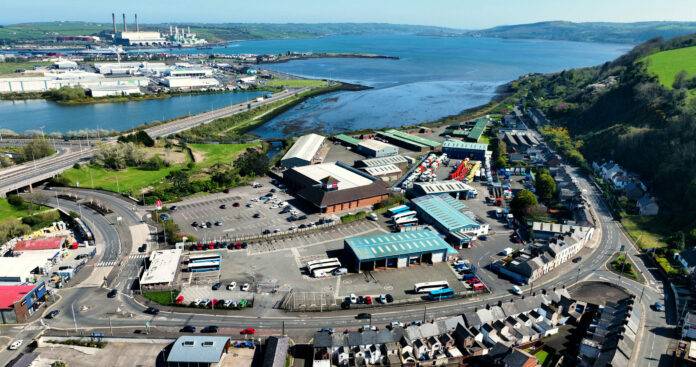Port authorities at Larne, Northern Ireland, have recently seized approximately 600 kilograms of illegal meat that had entered the UK from mainland Europe.
Farmers Weekly reports that this contraband meat was smuggled into Northern Ireland on the Stranraer to Larne ferry, raising alarm over the apparent ease with which it evaded detection.
The vehicle that transported the illegal meat is believed to have entered the UK at either Dover or another port in eastern England. It traveled through the country unchecked and undetected, with the contraband meat packed loosely. This raises significant concerns regarding potential disease risks associated with such imports.
The troubling discovery was addressed at a roundtable meeting held on January 17, which involved officials from the Department of Agriculture, Environment and Rural Affairs (Daera) and various industry stakeholders.
An industry source who attended the meeting remarked, “This discovery raises pertinent questions about what the port authorities in Northern Ireland are doing differently compared to their counterparts at ports in Britain.”
“After entering the UK, the consignment left Britain through the Scottish port of Stranraer before being intercepted at a third checkpoint in Larne, Northern Ireland. It is crucial for health officers at every port to maintain a vigilant and inquisitive mindset when they encounter suspicious vehicles. It would be enlightening to understand what prompted the officers in Larne to stop the vehicle after it had previously passed through two other UK ports without issue.”
A Daera spokesperson confirmed that staff at Larne Port seized 601 kilograms of animal-origin products that had arrived from Great Britain on January 16, 2025. “The product was denied entry into Northern Ireland as it was deemed non-compliant with sanitary and phytosanitary requirements,” the spokesperson stated.
Concerns Over Dover
The recent discovery has intensified concerns regarding the inadequate checks in place at Dover, particularly in relation to the importation of illegal meat through both commercial and non-commercial routes. This situation underscores the apparent flaws within the Border Target Operating Model (BTOM).
Despite operating at only about 20% capacity due to financial limitations, the Dover Port Health Authority has effectively seized around 170 tonnes of illegal meat since September. However, at a recent Environment, Food, and Rural Affairs (EFRA) committee meeting in Westminster, Lucy Manzano, head of the Dover Port Health Authority, warned MPs that these essential checks may need to cease within seven weeks unless adequate funding is secured from the Department for Environment, Food & Rural Affairs (Defra).
“There are significant gaps in the controls currently in place. Defra is not providing adequate communication regarding the intelligence or understanding of what is transpiring on the ground, which is fundamentally necessary,” she stated.
“If our funding is not secured soon, especially as we approach the fiscal year-end, these checks will have to stop since local authorities lack the resources to fund them.”
The EFRA committee has since reached out to Baroness Hayman, the Defra Minister for biosecurity and borders, to seek clarity regarding the funding situation for the Dover Port Health Authority and to address claims made during the hearing that products from Germany continued to enter the UK days after the government implemented a ban due to a Foot and Mouth Disease (FMD) outbreak in January.
Industry stakeholders are calling for a comprehensive review of the BTOM, amid rising concerns that imported goods are easily bypassing necessary checks, including through the ‘timed-out decision contingency feature’ (TODCOF) auto-clearance system.
According to Farmers Weekly, the industry source expressed, “All parties are increasingly frustrated with successive governments’ lack of commitment to securing our borders against the growing threat of exotic diseases. Isn’t it time for the UK to recognize illegal meat imports as a significant economic threat, comparable to that posed by drugs and firearms?”
Government Response
A spokesperson for the UK government responded, stating, “This government remains steadfast in its commitment to support the UK’s biosecurity and safeguard our food supply.”
“While the UK has historically not experienced an outbreak of African swine fever, we remain vigilant and have implemented strict import controls. We are unequivocally against the importation of illegal meat products, and suspected items are routinely checked at the border to prevent them from entering our markets.”



